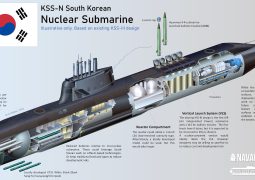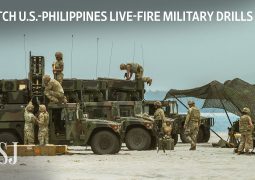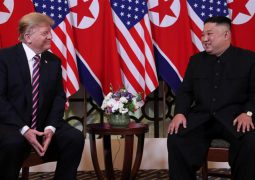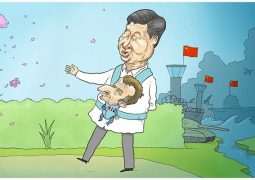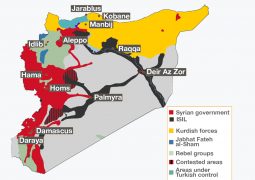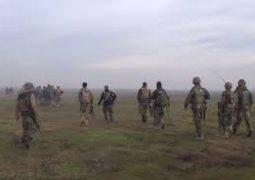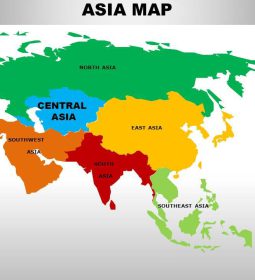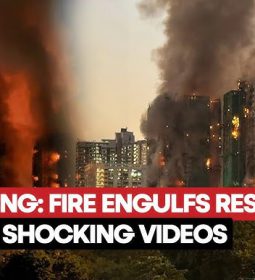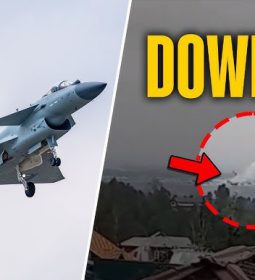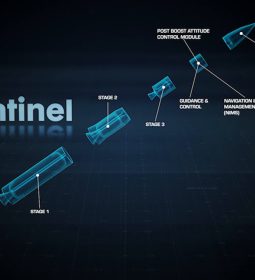Moscow-Beijing joint air patrols in Fat East: Russia disputes South Korea’s claim of its jets ‘fire warning shots’ TU-95 strategic bombers
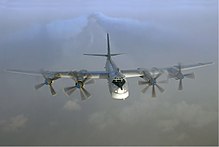
Seoul and Moscow at odds over alleged violation of airspace above disputed islands
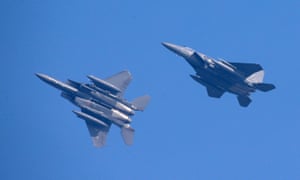
South Korean jets fired 360 rounds of warning shots after a Russian warplane violated South Korea’s airspace, Seoul officials have said in an announcement that was quickly disputed by Russia.
Seoul said three Russian military planes – two Tu-95 bombers and one A-50 airborne early warning and control aircraft – entered South Korea’s air defence identification zone off its east coast before the A-50 intruded in South Korean airspace.
Russia said later that two of its Tu-95MS bombers had been on a routine flight over neutral waters and had not entered South Korean territory.
According to South Korean government accounts, an unspecified number of South Korean fighter jets, including F-16s, scrambled to the area and fired 10 flares and 80 rounds from machine guns as warning shots.
Seoul defence officials said the Russian reconnaissance aircraft left the area three minutes later but returned and violated South Korean airspace again for four more minutes. The officials said the South Korean fighter jets fired 10 flares and 280 rounds from machine guns as further warning shots.
Seoul said it was the first time a foreign military plane had violated its airspace since the end of the 1950-53 Korean war.
South Korea’s foreign ministry and joint chiefs of staff summoned Russia’s acting ambassador and its defence attache respectively to protest.
Russia’s defence ministry said in a statement that South Korean fighter jets had not fired any warning shots, though it said they had flown near the Russian planes in what it called “unprofessional manoeuvres” and posed a threat.
“If the Russian pilots felt there was a security threat, they would have responded,” the statement said.
South Korea’s presidential national security adviser, Chung Eui-yong, told a top Russian security official, Nikolai Patrushev, that South Korea viewed the airspace violation “very seriously” and would take “much stronger” measures if a similar incident occurred, according to South Korea’s presidential office.
The former Soviet Union supported North Korea and provided the country with weapons during the Korean war, which killed millions. In 1983, a Soviet fighter jet fired an air-to-air missile at a South Korean passenger plane that strayed into Soviet territory, killing all 269 people on board.
Relations between Seoul and Moscow gradually improved, and they established diplomatic ties in 1990, a year before the breakup of the Soviet Union.
The airspace that South Korea says the Russian warplane violated was above a group of South Korean-held islets roughly halfway between South Korea and Japan that has been a source of territorial disputes between them. Russia is not part of those disputes.
South Korea said the three Russian planes had entered the South Korean air defence identification zone with two Chinese bombers. It was not immediately known whether the two countries deliberately did so. South Korea said the Chinese planes had not intruded in its airspace.
The Russian statement accused South Korean aircraft of trying to hamper the flights of Russian jets before “a vague missile defence identification area” that it said South Korea had unilaterally defined. Russia said it had raised its concerns about the zone before.
Before their reported joint flights with the Russian planes, the Chinese warplanes entered South Korea’s air defence identification zone off its south-west coast, South Korea’s defence ministry said. Seoul says Chinese planes have occasionally entered the air defence identification zone in recent years.
South Korea’s foreign ministry and joint chiefs of staff registered official protests with Beijing.
A Chinese foreign ministry spokeswoman, Hua Chunying, said she was not clear about the situation but noted that the air defence identification zone was not territorial airspace and others were entitled to fly through it.
She took issue with a reporter’s use of the word “violation” to ask about China’s reported activity. “I feel that given China and South Korea are friendly neighbours, you should be careful when using it, because we are not clear about the situation,” she said.
Meanwhile, Japan protested to Russia for allegedly violating Japanese airspace and to South Korea for firing warning shots there.
The Japanese chief cabinet secretary, Yoshihide Suga, said South Korea’s firing of warning shots was “absolutely unacceptable” in light of Japan’s territorial claims to the Korean-controlled islands that Japan calls Takeshima and South Korea calls Dokto.
He said Tokyo “strictly objected to Russia and South Korea via separate diplomatic channels and strongly requested the prevention of a recurrence”.
- Previous Will China send in the troops to stamp out protests in Hong Kong?
- Next Doha rejects NYT’s reports on its involvement of Qatar in bombings in Northern Somali



